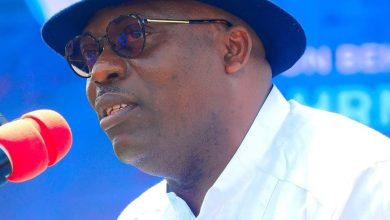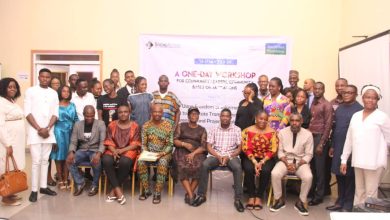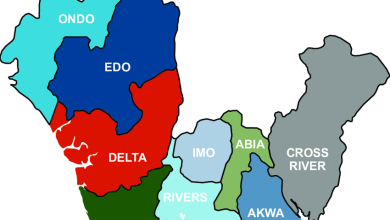Presidential Amnesty Programme And The Logic Of Discontinuity

“I have cause to, again, advise or warn the Federal Government to desist from anything that will truncate the fragile peace that we have in the Niger Delta region. I say this because, just yesterday, rumours were rife that the four-man investigative panel headed by A.A. Lawal, set up by the Federal Government through the Office of the National Security Adviser, Maj. Gen. Babagana Mungono (retd.), to look into the activities of the Presidential Amnesty Programme, had recommended the scrapping of the amnesty programme by December this year. If this is true, it will be an epic example of what we say in local parlance ‘trouble dey sleep, yanga go wake am’. This is not a threat; it is stating the obvious of what will actually happen”, Pa Edwin Clark.
On Friday, August 21, 2020, President Muhammadu Buhari announced the sack of the coordinator of the Niger Delta Presidential Amnesty Programme (PAP), Professor Charles Dokubo.
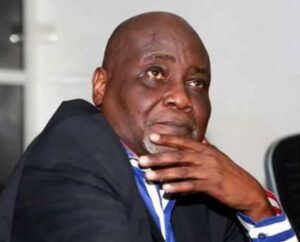
A statement announcing the removal of the former coordinator, signed on behalf of the President by one of his media aides, Shehu Garba, also announced the appointment of Col. Milland Dikko, a retired Army officer, as interim administrator with effect from August 21, 2020. The release further disclosed that the step taken by the President was a prompt reaction to one of the recommendations of a panel set up by the national security adviser, Babagana Munguno, to investigate allegations of financial impropriety levelled against the embattled coordinator.
Prof. Dokubo came into office in 2018 following the sack of Paul Boroh but it was not long when, in February 2019, Prof. Charles Dokubo was suspended by the Babagana Munguno panel incidentally on the strength of same petitions and allegations that were levelled against his predecessor; but he was later recalled. According to Sahara Reporters, Prof. Dokubo’s recent sack was announced while he was in London.
Beyond the surface, the sack of Professor Dokubo has raised questions about the endemic corruption plaguing practically all agencies and heads of special vehicle models that were designed for the composite transformation of the Niger Delta. Indeed, if appointing and sacking were any indices of achievements, then the present administration of President Buhari has scored a negative excellence in the Niger Delta in this regard.
Related: Ex-Militants Warn Against Scrapping Of Amnesty Programme
For whatever justifications, whether in the NNDC or in other interventionist agencies related to the Niger Delta, the President has in the last one year or so either suspended or sacked no fewer than seven persons heading agencies in the region alone. If the ongoing investigation of the NDDC by the National Assembly and unpredictable consequent recommendations shall be anything tenable, there are fears that many more shall be swept along by the adopted culture of suspension and sack.
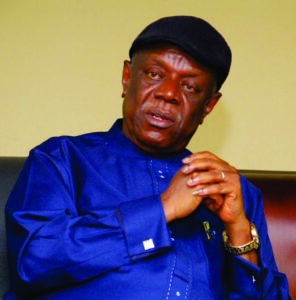
According to some stakeholders, this pattern of frequent disengagements has resulted in distraction that has affected concentration and consistency of those on board. But there appear to be two stronger or worse reasons for apprehension – the rumoured plans to abrogate the Presidential Amnesty Programme and entrusting the running of agencies in the Niger Delta to caretaker committees, which as the speculations in certain quarters suggest, might have non-Niger Delta indigenes as critical players on it.
Has the Presidential Amnesty Programme, for instance, outlived its usefulness? Or, could it be said that President Buhari is tinkering with the idea of abrogation of the programme simply because he is fed up with the communicable culture of corruption that has characterized it since inception in 2009, like has been the case in sister agencies in the region? Assuming these inquiries all meet affirmative nods, what functional alternatives are in place to absorb the teeming number of youths and the unemployed from the region?
To leaders and stakeholders in the oil-rich Niger Delta, any plans to scrape the programme, for any intent and purposes, must be seen as ominous. To them such thinking predisposes more dangers than solutions. On the crest of intense rumour about the scrapping of PAP, a Niger Delta strongman and chieftain of Pan-Niger Delta Elders Forum (PANDEF) had on Monday, August 18, 2020 held a virtual conference in Asokoro residence, Abuja, where he put up the statement that formed the superscription to this piece.
Related: Niger Delta Ex-Militants Raise Alarm Over Plot To Oust Amnesty Boss
On a general note, PANDEF blames the Federal Government for whatever crisis faces the programme, which they see as the primary reason for its failure. Among other things, the body berates the Federal Government for insincerity and failure to holistically implement the programme. The group questions the high turnover of heads of interventionist agencies for the Niger Delta, a questionable step which has frustrated attempts at bringing lasting peace and sustainable development to the Niger Delta region.
In a statement earlier in March this year, the publicity secretary of PANDEF, Ken Robinson, said it is only one aspect of the five-part components of the programme that the Federal Government has so far implemented. “We have earlier called for the proper set-up of the programme. There are five components of the amnesty programme…. We are not happy with the way and manner the Presidency is handling some of the interventionist agencies in the Niger Delta, particularly the idea of setting up caretaker committee. We ask for a substantive amnesty programme chairman”.
Centre for Human Rights and Anti-Corruption Crusade (CHURAC) has corroborated this viewpoint, describing the appointment of an interim administrator for PAP as a fluke. Speaking through its national president, Cleric Alaowei Esq., the group demanded that President Buhari immediately appoint a substantive coordinator for the programme. “The new interim administrator for PAP is another political gimmick. PAP does not need interim administrator. Such will limit the scope and functions of the terra firma”, the statement contended.
On the contrary, in November 2019, Prof. Dokubo justified President Buhari’s commitment to the amnesty programme as well as the development of the Niger Delta as a whole. Speaking in in Okochiri, Okrika Local Government Area, Rivers State, during the second coronation anniversary of the Amanyanabo of Okochiri Kingdom, HRM, King Ateke Michael Tom, himself a born-again agitator, Prof. Dokubo stated that President Buhari has kept his promise for the region. “I strongly believe that because our people feel the positive impact of the Federal Government’s outreach, the promises kept, they are very happy”, he had applauded the President in defence of his policies for PAP which he said has trained over 20, 000 ex-militants in various fields.
About the same time, December 2019, Professor Charles Dokubo, who inherited 30, 000 beneficiaries of the programme, pinpointed to journalists in Abuja another underlying problem that the programme faces: “The beneficiaries now want to stay on the programme forever and even rejecting job offers of N50, 000. This is not good as the people feel a sense of entitlement and are unaware that the scheme will not last forever, because everything that has a beginning must have an end. They now see the scheme as a family business as children now take the place of their parents who may have died”.
However, or ironically, part of allegations that may have led to Prof. Dokubo’s sack was his mismanagement of scholarship funds, stipends and associated wages of beneficiaries of the programme, issues that mostly have frustrated many students and trainees in foreign lands.
The Presidential Amnesty Programme came into existence on June 25, 2009 following late President Musa Yar’Adua’s proclamation of a 60-day unconditional amnesty period for militants in the Niger Delta. The offer came with calls for voluntary and mandatory handover of arms, renouncement of militancy and signing of an undertaking in that regard. The five-point agenda of the programme was disarmament, demobilization; rehabilitation; and sustainable reintegration.
With the former military administrator of Akwa Ibom State, Maj. Gen. Godwin Abbe, having served as pioneer coordinator of the programme (Edo State, 2009-2010), others in the line of succession who directly or indirectly had handled the same responsibility included Hon. Kingsley Kemebradigha Kuku (Ondo State, 2011-2015); Ndutime Alaibe (Bayelsa State, 2010-2015); Gen. P. T. Boroh, retd. (Bayelsa State, 2015 -2018), and Professor Charles Dokubo (Rivers, 2018 -2020).
Intriguingly, when it is not taken as an abbreviation, the word “pap”, on its own, carries a denotative definition that is coincident with the existence of PAP and the preponderate misfortune of the Niger Delta. According to Merriam-Webster Dictionary, three etymological and semantic variations for the meaning of pap as first used in the 13th century include (a) a soft food – as for infants. (b) Political patronage (c) Something lacking solid value or substance. Do these capture the plight of the Niger Delta? Were the creators of this model aware of these?


